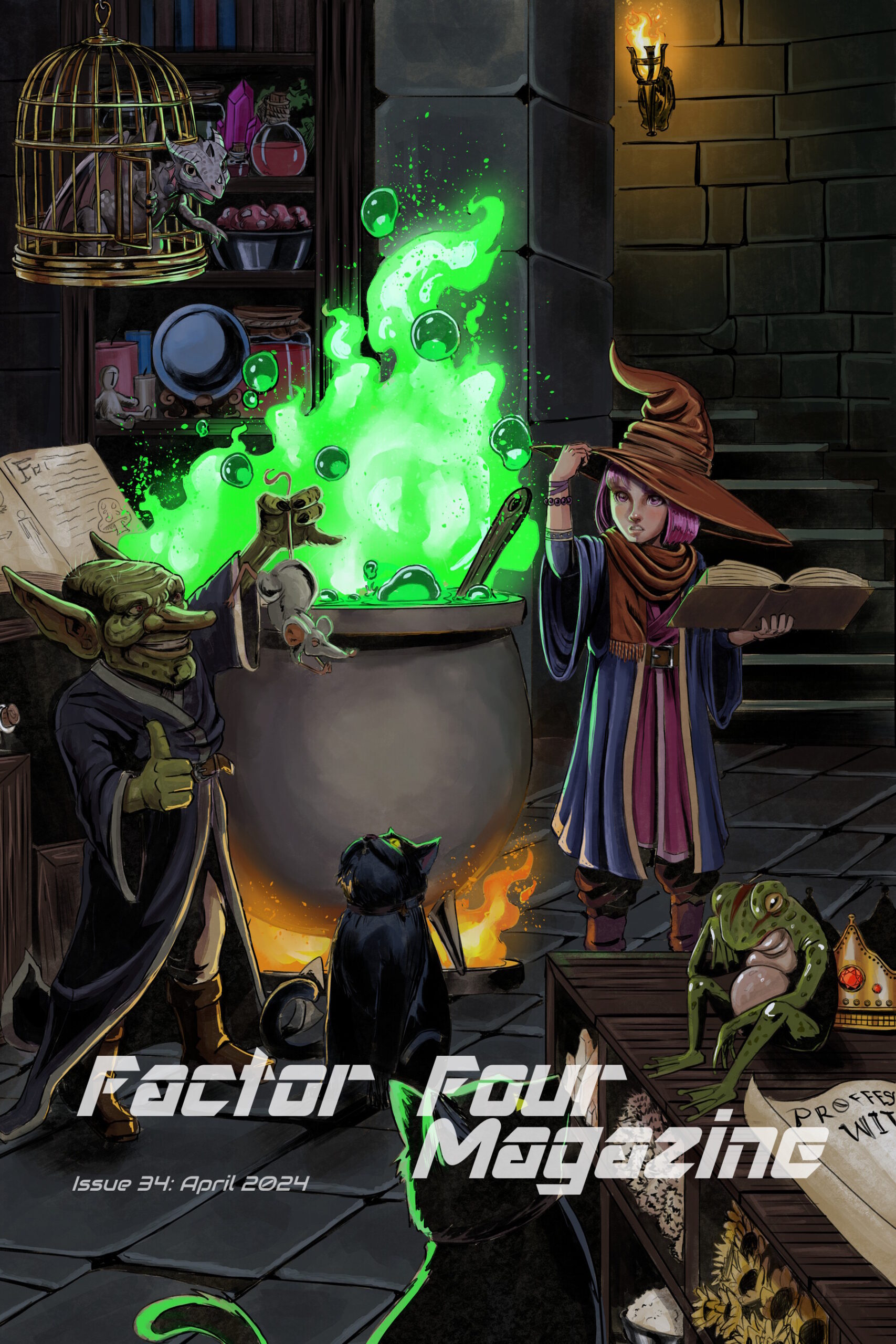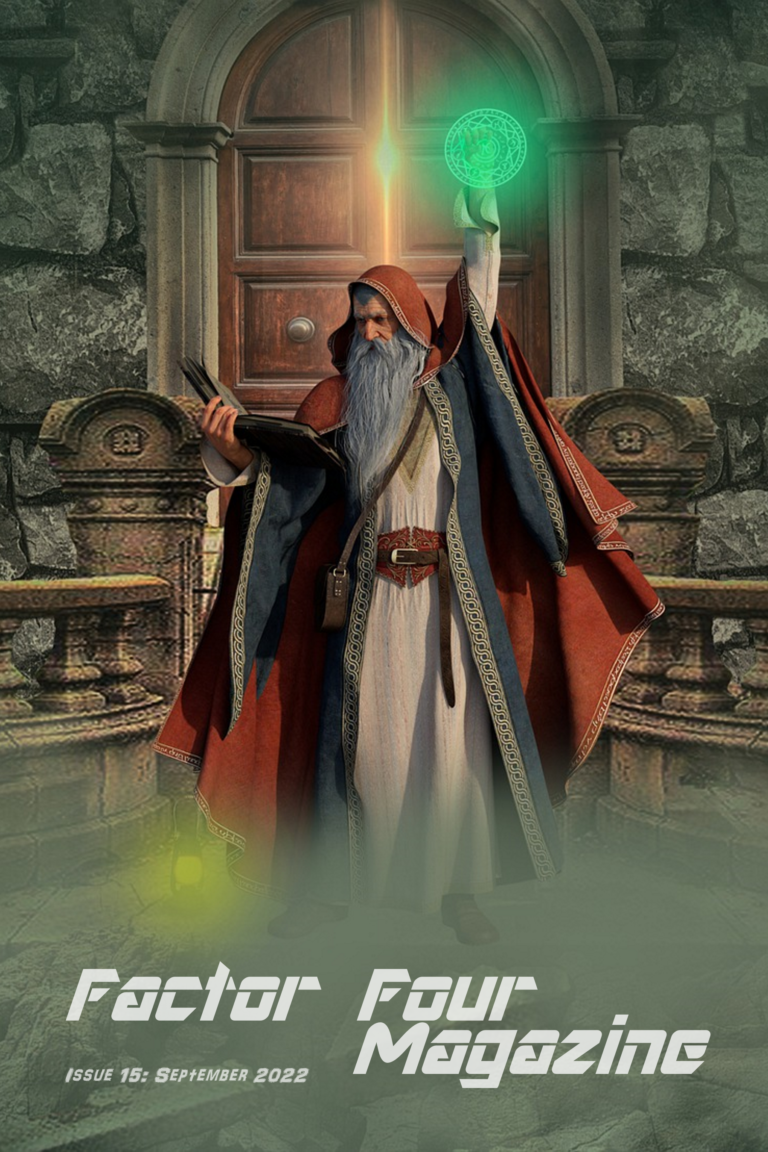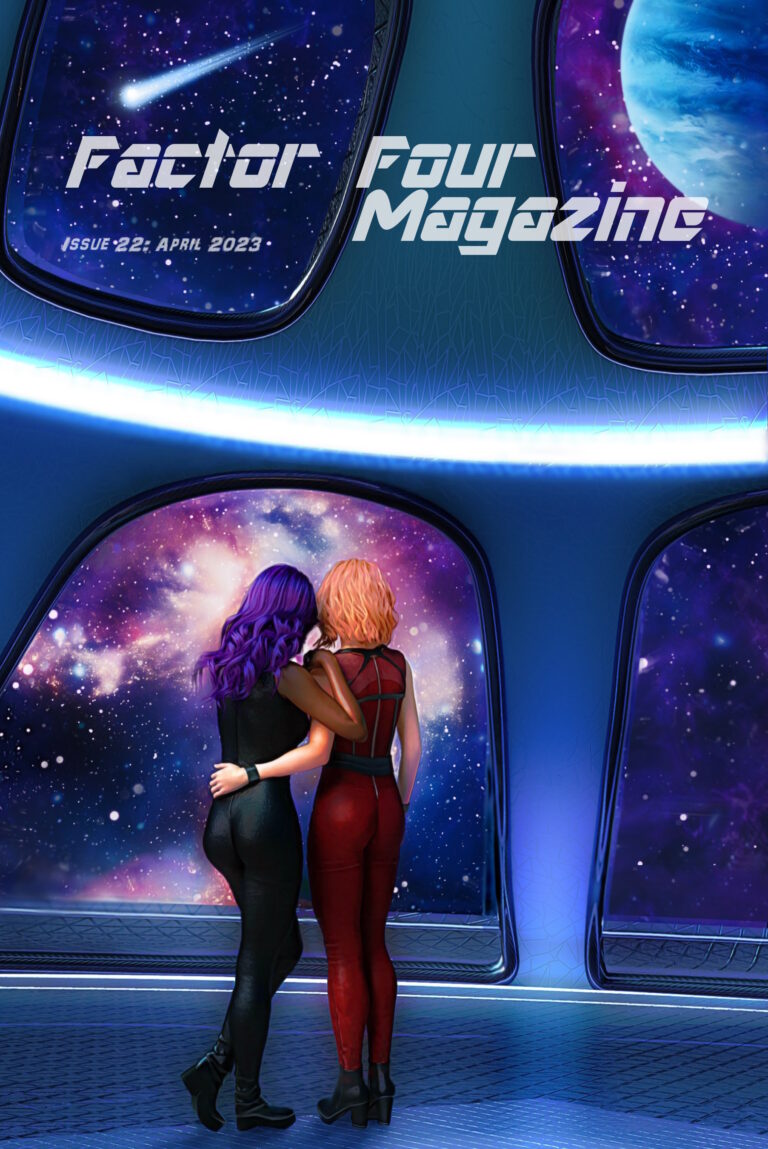Three Lonely People and a Machine by Timothy Quinn

Moll broke the news to her husband in the neurology visitors lounge on the fifth floor. “He’s rallied,” she said.
“Rallied?”
“He’s going to pull through, George.”
“Thank god,” he said. The cherrywood casket, he thought, and the catering. And we’ll have to do something about the eidolon.
George left his wife at the hospital and drove his electric Denali home through the predawn mountain hush, then sat a while in the garage of their three-bedroom faux-Scandinavian chalet listening to the heaters cycle on and then off.
“Late night, early morning,” mused the reflection of Moll’s dad in the hall mirror. “Either way, how about a corretto to warm you up?”
George shrugged out of the taffeta shell parka and splayed his waterproof trail boots to dry on the runner. “Thanks, Pop,” he said.
The espresso was waiting for him in the kitchen, the smell of fresh grounds in the air.
“Moll didn’t think you’d make it,” he told the eidolon, which was sitting in the reflection of the dining room table, blowing steam off the top of a tiny porcelain cup.
The eidolon smiled the way Moll’s dad might once have smiled. “You know me, son, tough as factory rubber.”
“I know, Pop.”
“And how’s my girl doing?”
“She’s good, Pop. We’re both good.”
“Don’t worry about all this.” The eidolon was programmed in recursive situations to refer to itself obliquely in the third person. “You have to do what’s best for you and Molly.”
“I know, Pop.”
He was grateful at that moment to the point of tears, even though a part of him knew it wasn’t the man he’d known so much as the personality tweaks designed to match the sanded edges of memory. They were quiet together for a bit.
“I think I ought to get some sleep,” he said, the coffee as yet untouched.
“Good idea.”
George unballed his sheets from the floor, then plucked the sleeping pills individually from the carpet and replaced them in the bottle. He put his phone back on the induction plate from which he’d snatched it a few hours ago. He looked out the frosted window into a moonless night, and then he pulled the flax blackout curtains closed and unplugged both sunrise lamps.
“You sleep, and we’ll sort it out in the morning,” said his father-in-law from the bedroom mirror, and turned off the light.
Moll called after nine. George made himself a spinach omelet, shoveled the drive, and then drove back to the hospital and met the neurologist, who showed them the Bluetooth prosthetic behind the old man’s ear and explained that it would – heuristically? holistically? – interpret the brain’s electrical activity, compensating for vocal cords immobilized by stroke.
“Your son-in-law’s here, John,” said the doctor.
“Percocet,” said the Bluetooth speaker in the crisp voice of a British governess. “Scotch whiskey.”
George offered a wan smile.
“You can select the voice in the app,” confided the doctor. “Let’s get you some aspirin, John.”
They brought the old man home that weekend. The eidolon had put up balloons and bunting in the front room’s transom windows, and wore a dinner jacket and necktie that must’ve come from an old family photograph. “It’s good to have the family back together,” smiled the eidolon, glancing at a Submariner which matched the one on the old man’s atrophied wrist. “There’ll be cake in a few minutes.”
“And ice cream,” said the speaker icily. The old man had somehow rearranged flaccid facial muscles into a look of disgust for the electronic effigy.
“I do a damn good frozen avocado puree,” said the eidolon.
“We’ll get some ice cream, dad,” said Moll, helping her father into a chair. “It’s just nice to have you home. What else can I get you?”
“Prokhorovka,” enunciated the old man’s speaker. “Panzergrenadier. Tokarev semi-automatic.”
“That sounds like the Eastern Front,” said the eidolon and turned on the TV, letting it cycle through a library of war documentaries. “Prokhorovka. Brutal hand-to-hand. Kept the Germans out of Moscow, though, didn’t it? …Hold that thought, here’s the cake.”
Moll turned off the flatscreen. “Dad, we’ll put on the TV in a bit, okay?”
“Rasputitsa,” insisted the old man.
“Yes, the mud,” commiserated the eidolon.
“We’ll have all the mud and the tanks and the dead bodies later, dad.”
Moll led George by the arm into the sunroom and closed the French doors. “Why,” she asked him, “is it still here?”
“To remember him.”
“To remember him when he’s gone, George.”
“It’s an annual subscription.”
“Call them. Take store credit. You’re not the first grieving son-in-law to jump the gun.”
“Feels weird.”
“It’s an appliance, George. It’s a machine. It doesn’t care about you, or about me. It exists only to exist.”
The old man didn’t look up when Moll opened the French doors. “Look what I found when I was packing for the hospital, dad,” she said, holding up her mother’s box of family keepsakes.
At 4:10 AM, the kitchen fluorescents sputtered on at the sound of a footfall. The eidolon peered out from the glass divider above the pony wall. “Can’t sleep?”
Ignoring the eidolon, the old man looked in the fridge, then poured a glass of tap water, which he drank slowly staring out into the night. Above the faint ticking of a nonexistent clock, something chirped nearby in the darkness.
“Sounds like a bird, doesn’t it?” said the eidolon, folding a dish towel over one shoulder. “More likely a mountain lion comforting her cub. Her young won’t stray far.”
The old man put the glass on the counter, left the fridge open, and shuffled out of the kitchen, the sound of his bare feet receding on the parquet. The eidolon gently closed the fridge and leaned back against the counter, already dimming into power-saving mode. After an hour or so, the eidolon blinked and switched the dish towel to the other shoulder, but the forest remained quiet.




